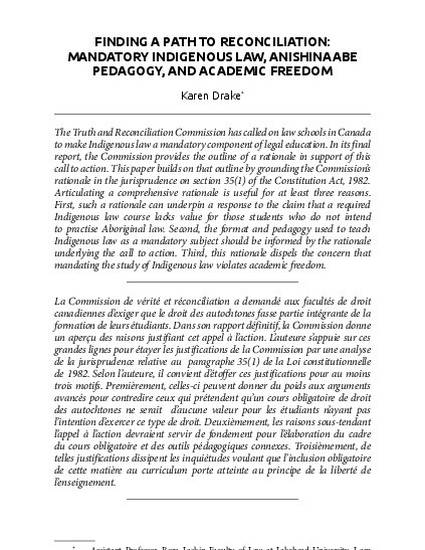
- Indigenous Law,
- Anishinaabe Pedagogy,
- Reconciliation,
- Mandatory Indigenous Content,
- Academic Freedom
The Truth and Reconciliation Commission has called on law schools in Canada to make Indigenous law a mandatory component of legal education. In its final report, the Commission provides the outline of a rationale in support of this call to action. This paper builds on that outline by grounding the Commission’s rationale in the jurisprudence on section 35(1) of the Constitution Act, 1982. Articulating a comprehensive rationale is useful for at least three reasons. First, such a rationale can underpin a response to the claim that a required Indigenous law course lacks value for those students who do not intend to practise Aboriginal law. Second, the format and pedagogy used to teach Indigenous law as a mandatory subject should be informed by the rationale underlying the call to action. Third, this rationale dispels the concern that mandating the study of Indigenous law violates academic freedom.
Available at: http://works.bepress.com/karen-drake/100/
